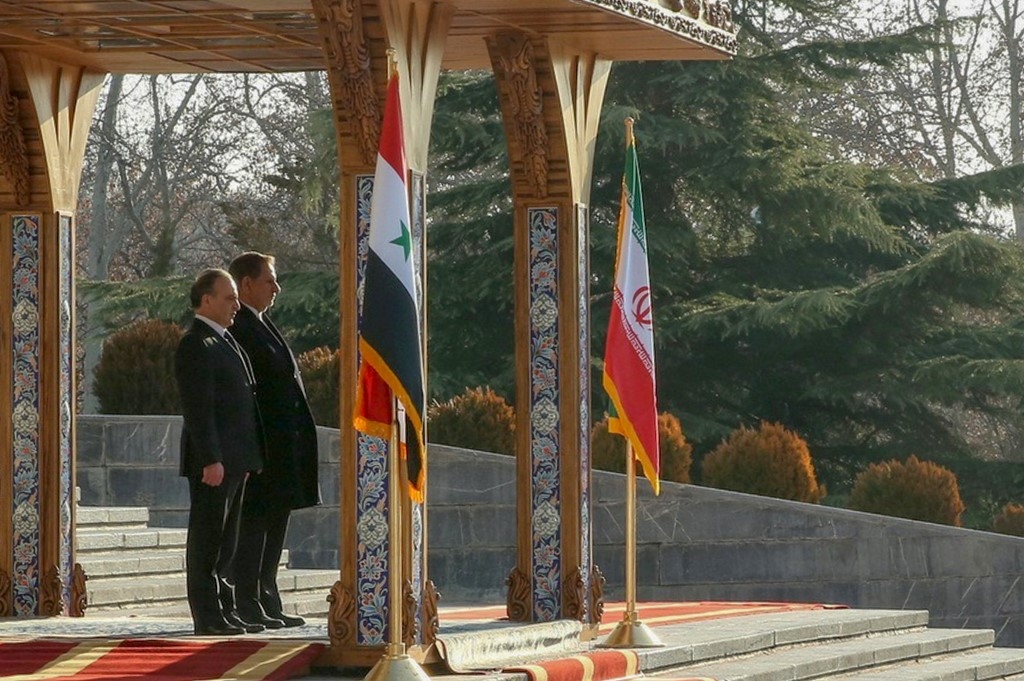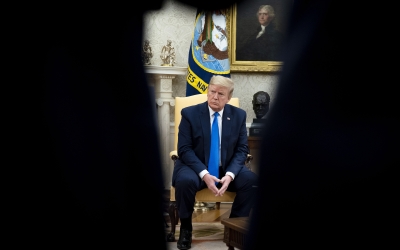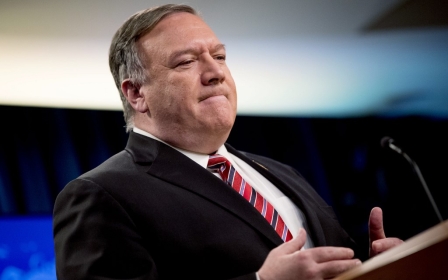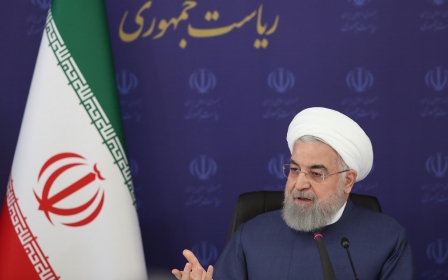US sanctions are forcing Iran to scale back presence in Syria, US envoy says

US sanctions against Iran have forced the country to scale back its military presence in Syria, the US special representative for Syria says.
James Jeffrey touted Washington's apparent success at a virtual panel hosted by the Hudson Institute on Tuesday, saying the Trump administration's "maximum pressure" campaign of sanctions had crippled Iran's economy, forcing the government to withdraw some of its forces and militias from Syria.
"We have seen the Iranians pulling in some of their outlying activities and such in Syria because of, frankly, financial problems… the Trump administration's sanctions policies against Iran [are] having a real effect in Syria," Jeffrey said.
'[The US must] work with the Arab world and Europe to ensure nobody goes wobbly - as Margaret Thatcher once famously said - on sanctions'
- James Jeffrey, US envoy
Syria has seen a lull in fighting in recent months largely amid a ceasefire that was brokered in early March by Russia and Turkey.
Since then, guns have mostly fallen silent, most notably in the country's embattled Idlib province.
Jeffery admitted some of Iran's withdrawal efforts may be attributed to the ceasefire, but he said that sanctions have also played a large role.
"We do see some withdrawal of Iranian-commanded forces. Some of that is tactical because they are not fighting right now, but it also is a lack of money," Jeffrey said.
Iran is reported to have reduced the presence of its al-Quds Force, Shia militias and Hezbollah-aligned forces on Syrian soil from a peak of 25,000 to a few thousand recently.
Israel's military pressure
In addition to US sanctions and other economic factors, Israel's military pressure on Iran has also played a role in weakening Tehran's power in war-torn Syria.
Iran is reported to have moved its bases and storehouses from Damascus, Homs and Hama towards the border with Iraq in hopes that its military arsenal will be farther away from Israeli reach.
While confrontations between Israel and Iran had slowed with the coronavirus pandemic, in the last several weeks Israel has resumed air strikes against Iranian targets in Syria.
Syrian officials, media and opposition groups have reported at least six recent Israeli attacks on Iranian targets.
One of those strikes hit Syria's Iranian-supported Scientific Studies and Research Center (CERS), believed to be responsible for the research and development of nuclear, biological, chemical, and missile technology and weapons.
'More of the same'
Still, as Washington seeks to cripple Iranian capabilities with its "maximum pressure" campaign, Iran continues to make powerful moves on the world stage. Last month, Iran, one of a handful of nations with indigenous space-launching capabilities, successfully launched its first military satellite.
The US condemned the move, warning that Iran’s space programme was "neither peaceful nor entirely civilian".
To keep the pressure on Iran, the US is planning to trigger yet another round of economic penalties via the so-called Caesar Act, which will come into effect on 17 June. The law sanctions governments or private companies that lend support to the Syrian government.
"My recipe is more of the same," Jeffrey said of US strategy against Iran.
The United States must "work with the Arab world and Europe to ensure nobody goes wobbly - as Margaret Thatcher once famously said - on sanctions."
The US is also preparing a legal argument that seeks to stop a UN arms embargo on Iran from expiring in October.
Middle East Eye propose une couverture et une analyse indépendantes et incomparables du Moyen-Orient, de l’Afrique du Nord et d’autres régions du monde. Pour en savoir plus sur la reprise de ce contenu et les frais qui s’appliquent, veuillez remplir ce formulaire [en anglais]. Pour en savoir plus sur MEE, cliquez ici [en anglais].





